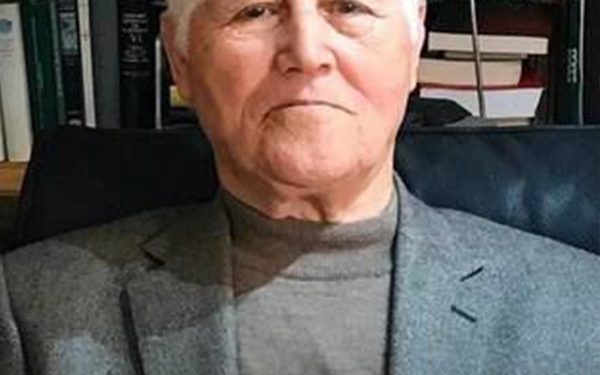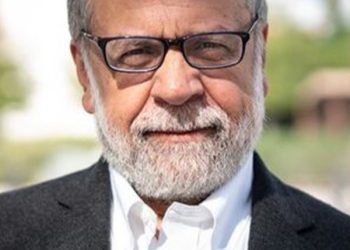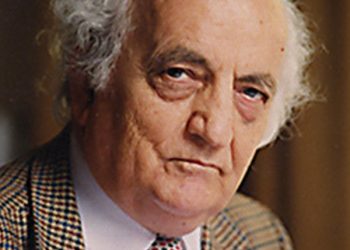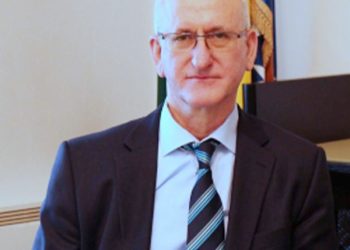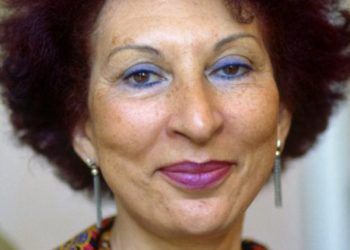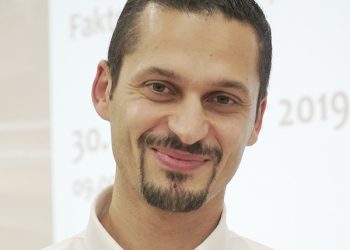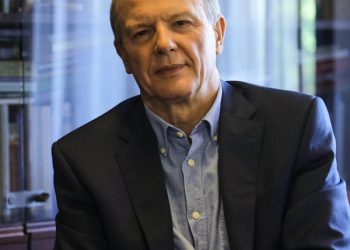Abdullah Laroui (Abdullah al-Arawi) was born in 1933 in the Azemmour region of Morocco. A philosopher, historian and novelist, Laroui published his works in French and Arabic. Having lost his mother when he was two years old, Laroui received his basic education in traditional schools before the age of seven. In the aftermath of World War II, however, French soldiers in Morocco were more tolerant of talented students, and Laroui won a scholarship to study at the College Sidi Mohammed in Marrakech. After studying there for five years, he continued his education at the Lycée Lyautey in Casablanca from 1949 to 1951 and at the Lycée Gourand in Rabat from 1951 to 1953. In 1953, Laroui continued his studies at the Institut d’Études Politiques in Paris, majoring in history and economics. He was in the environment of and studied under professors such as Charles Morazé and Raymond Aron.
In 1958, he was awarded the “Diplôme d’études supérieures”, the old national diploma of French higher education. Abdullah Laroui graduated from university in 1958 and worked in the Ministry of Foreign Affairs. After serving as cultural attaché in Cairo and Paris, he resigned from the ministry and returned to Paris, where he continued his studies. In 1963, he completed his specialization in Islamic Studies. Then he started to work as an assistant professor in the history department at Rabat Mohammed V University. In 1976, he received his PhD degree with his thesis titled “Les Origines sociales et Culturelles du Nationalisme Marocain, 1830-1912” (The Social and Cultural Origins of Moroccan Nationalism, 1830-1912).
In this thesis, he analyzed Moroccan nationalism as a case of “delayed consciousness”. He published his thesis a year later and continued to teach at the University of Mohammed V until 2000. Laroui, described by historian Albert Hourani as one of the most important Arab thinkers of the post-1967 period, read history through the change of social structures. He analyzed Karl Marx as a historian and theorist and wrote articles from a Marxist historical perspective. Another of his interests was the history of the Islamic world, and as an independent scholar, he analyzed the factors shaping contemporary Arab thought. He has lectured on North African History at the University of California, Los Angeles (UCLA). He influenced Gustave von Grunebaum, another academic at UCLA, with his ideas and views. Laroui returned to Rabat in 1969-70, where he taught until 2000, when he retired as an honorary university professor. Until his retirement, he taught courses on North African History, Historical Research Methods, and Arab Thought. For a long time he was an active member of the Royal Moroccan Society.
His texts on the links between modernity, historiography and politics have made him stand out among Arab intellectuals. His writings and speeches have inspired Arab intellectuals seeking to understand the structure of Arab society. “Idéologie arabe contemporaine: essai critique” (Contemporary Arab ideology: a critical essay) published just before the 1967 Arab-Israeli War, “The History of the Maghrib: An Interpretive Essay” (History of the Maghrib: An Interpretive Essay), Arab La crise des intellectuels arabes: traditionalisme ou historicisme? (The Crisis of the Intellectual: Traditionalism or Historicism?), a collection of his essays arguing that Arab ideology could facilitate its modernization.
In addition to his works, Abdullah Laroui received the Premi Internacional Catalunya (International Prize of Catalonia) in 2000. Then, in 2017, he was awarded the Sheikh Zayed Book Prize for “Cultural Personality of the Year”, the first category with a prize of 1 million dirhams. His works translated into Turkish include Islam and History: Epistemology Essay (2019; Pınar Publications), Historicism and Tradition-Arab Intellectuals’ Crisis (1993; Vadi Publications), Islam and Modernity. In his works, Laroui rejected colonial Westernism and expressed ideas about the nature of the character of countries if they are not paved the way for independence. He published a novel in which these ideas were incorporated and based on the symbolic heritage of Morocco. In his works, he criticized the concept of the Islamic state and called for a liberal bourgeois state where academic and artistic freedom prevailed.





































